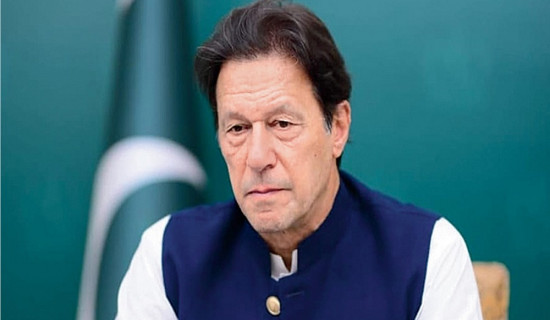- Sunday, 21 December 2025
Significance Of Social Security
Social protection has been utilised as a policy of social and economic stabilisation. It has many good things to offer for the holistic development of a country. Universal access to comprehensive, adapted, and sustainable social protection systems that provide benefits for all, during the entire life course, and in response to covariate shocks, is the right way towards development and prosperity. It is equally important to know and understand the costs associated with not having a robust social protection system in the country. Social protection is a human right to which everyone in any society should have access. This notion demands for extending social protection for all. It is also a prerequisite for social equality, cohesion and justice.
It helps to create a society that is helping, caring and empathetic. It constitutes a powerful tool to alleviate poverty and inequality through mitigating risks and vulnerabilities. It also makes the rich to pay tax for the betterment of the poor and those leaving behind. This has been demonstrated through long experience in more developed countries, as well as in Organisation for Economic Co-operation and Development countries that invested early in social protection. This has been claimed by a recent publication on social protection by the Asian Development Bank. One of the founding pillars of today’s developed countries was their meticulously articulated social protection.
Sustainable progress
It has been argued that the costs and impacts of neglecting social protection are borne by society as a whole at different levels, including the state, communities, the voluntary sector, families, enterprises, and individual citizens. Society cannot make significant and sustainable progress without extending the coverage and adequacy of social protection. Some of the costs and impacts that result from neglect or abandonment of social protection are discussed below.
The first set of costs relates to poverty and vulnerability. It is obvious that there is a clear positive correlation between these and weak or non-existent social protection. High social protection expenditure is positively related with low poverty and vulnerability. Keeping people in poverty and vulnerability has huge costs since it not only leads to people being chronically socially excluded, but also to people being dissatisfied and disaffected by society. Their productivity also remains untapped. Impoverished populations suffer from exclusion from the access to essential goods, services, and rights. They also suffer the loss of potential for individual development and to contribute positively to collective development in the social, political, and cultural fields. This further perpetuates poverty and backwardness in any society.
Second is the cost in terms of the advancement of the national economy. If there is a situation where many people are unemployed or living in poverty, then this is a productive loss to the economy. Remember manpower or labour is a factor of production. Further, without social protection or any means of support, wage demands will rise leading to hike in the cost of production and eroding of competitiveness. There is also the fact that cutbacks in social and health services can lead to greater costs for the state in the long term. Healthy manpower is the backbone of national economic development. The COVID-19 pandemic has underscored the need for stronger social protection systems to save economy and its workers.
The third cost is related to human capital development. A lack of investment in public benefits and social services means a decrease in life expectancy, health, education, and skills, and a lack of investment in the younger generation. Evidences show that children in the families getting elderly allowances are having better education and health outcomes in Nepal, too. Hence, no social protection implies that the current and future stock of a country’s human capital is diminished.
Fourth, social protection is also a way of creating political capital. It seems that this fact has now been understood by Nepal’s political parties as they compete in terms of increasing the amount of elderly allowances and reducing the age eligibility. It has been claimed that neglecting or abandoning social protection reduces the legitimacy of the state. It is a powerful tool of social contract between the state and the people.
There are clear benefits of social protection and disadvantages of not having integrated, transparent, deliberate, participatory and inclusive social protection systems. Nepal needs to develop social protection as a pillar of national prosperity. The fact is that effective access to and adequacy of social protection is not a luxury. It should be perceived as a sound investment in people and their society. It ensures high rate of return in economic, social and environmental terms. It has the power of constituting an indispensable and solid foundation for sustainable and peaceful development for all. This is what is all about Sustainable Development Goals (SDGs) and national development vision as articulated in Nepal’s ongoing 15th periodic plan. SDG 1.3 calls for universal social protection floor that leaves no one uncovered by social protection scheme at all stages of human life. Our constitution has also ensured right to social protection.
Investment
In this sense, social protection can be considered as an investment and, consequently, as a productive factor for realising development results. Maintaining her good records, Nepal needs to further invest in social protection to break the vicious circles of poverty and underdevelopment. A poverty-free country is what we are truly aspiring for. Following the ILO’s recommendations, ADB has also recently stated the need for strong political will and social dialogue, translated into effective policies and corresponding implementation strategies, comprehensive legal frameworks, and sustainable financing mechanisms for transforming social protection as a development strategy. The National Planning Commission’s draft National Integrated Social Protection Framework is a welcome step towards this direction.
(An expert in poverty, employment and social protection, Dr. Bhusal currents works at the National Planning Commission.)











-(1)-original-thumb.jpg)




